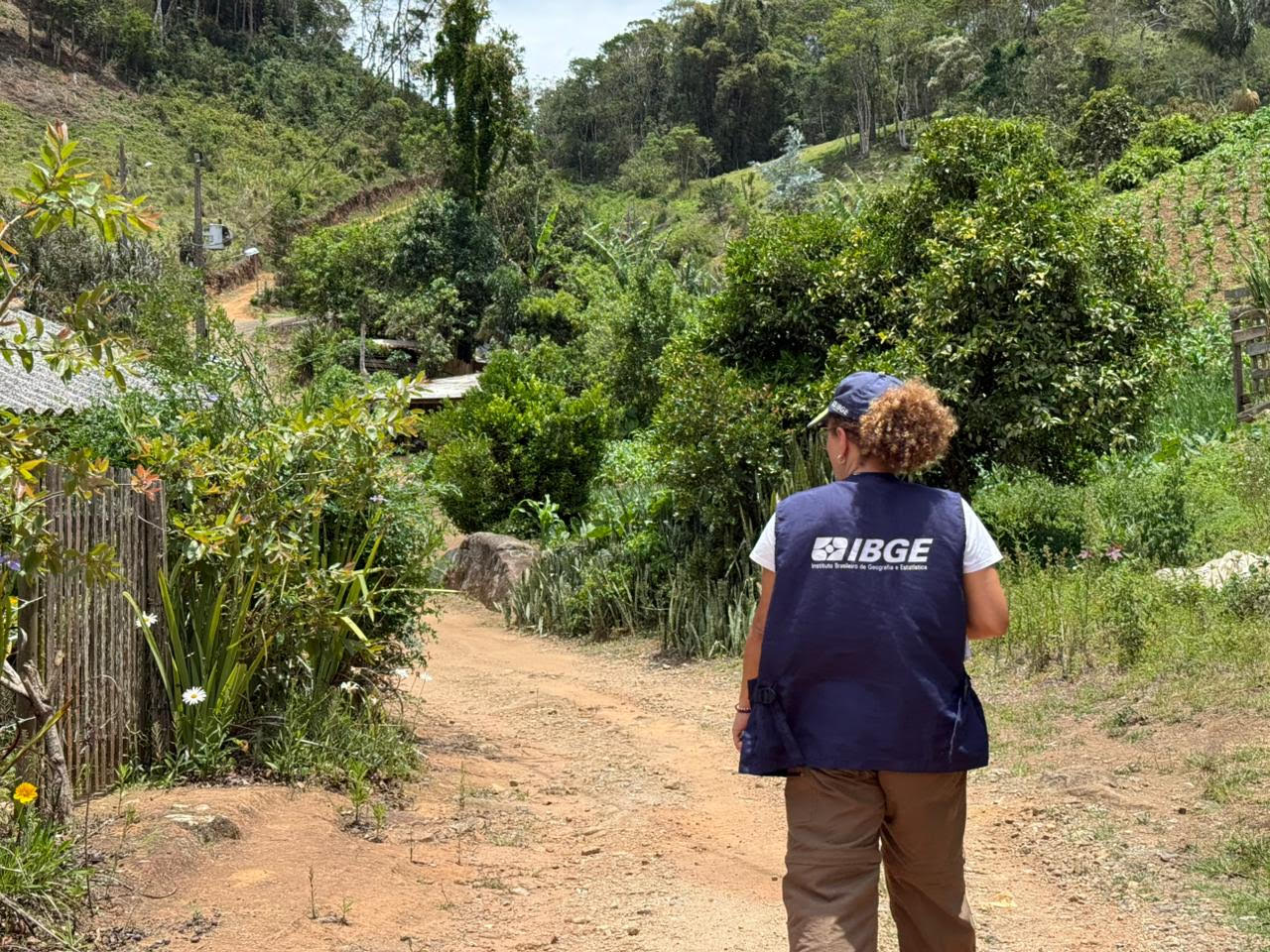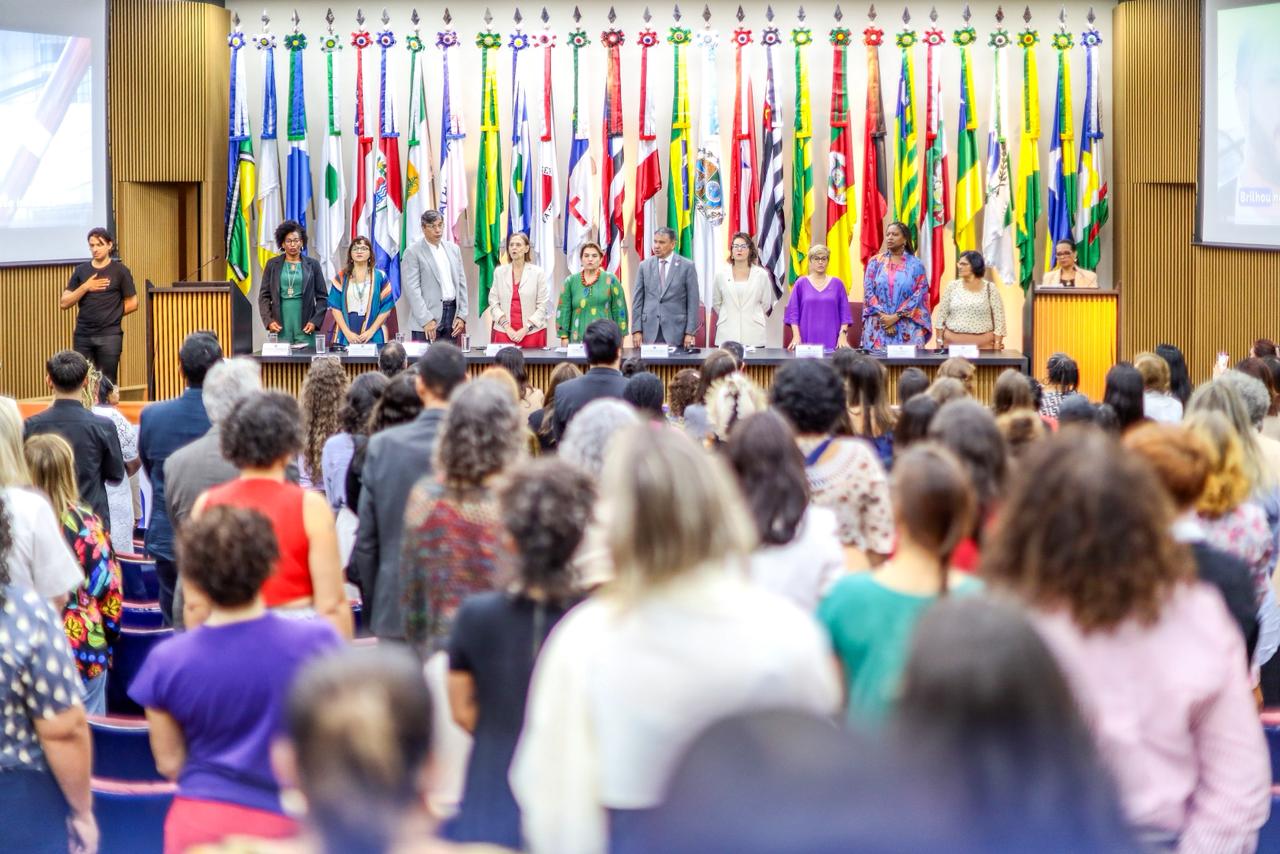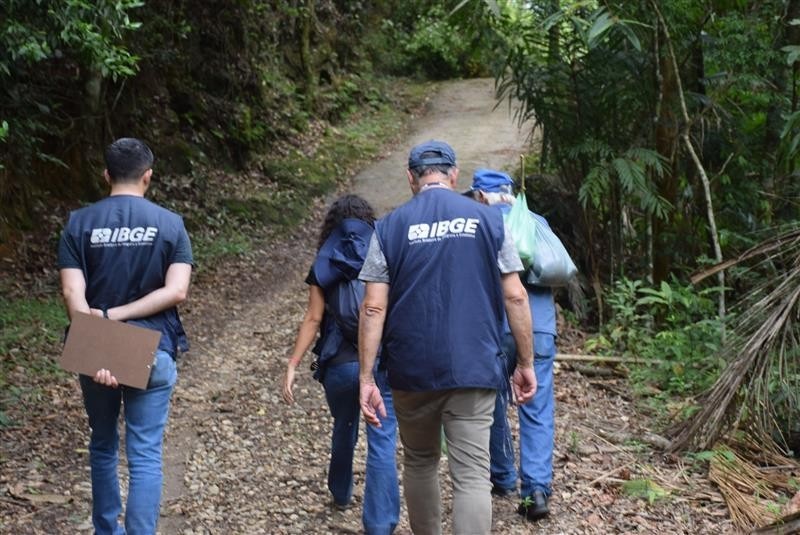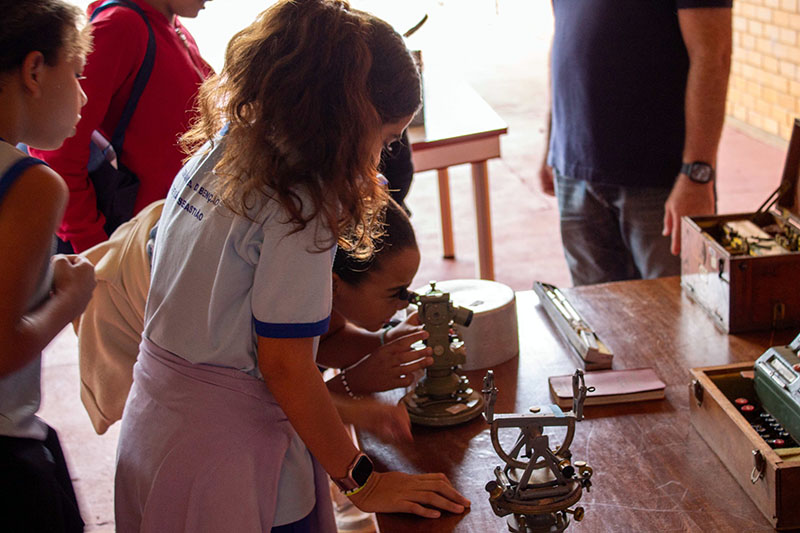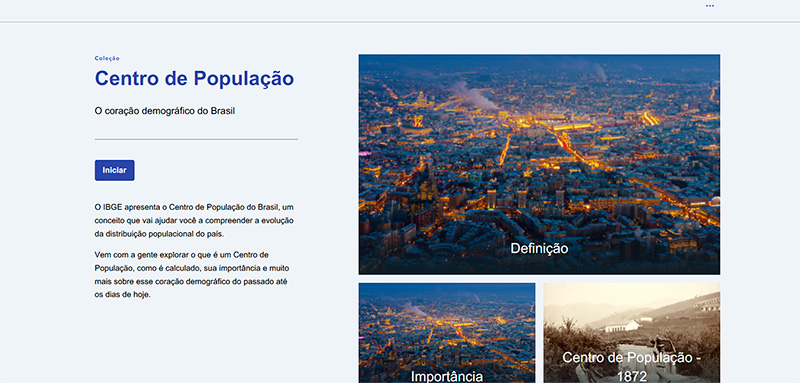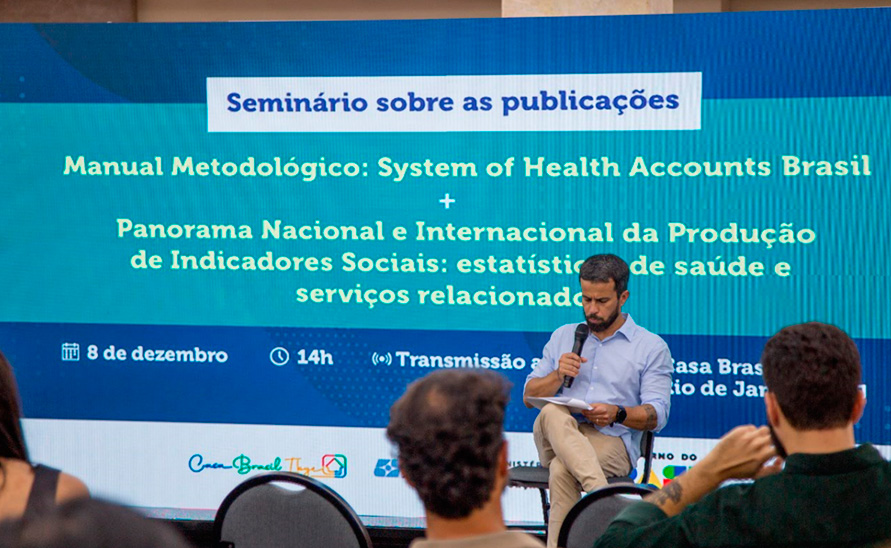IBGE female servants graduate from the LideraGov course targeted at training black leadership
September 03, 2024 03h13 PM | Last Updated: September 06, 2024 08h52 PM
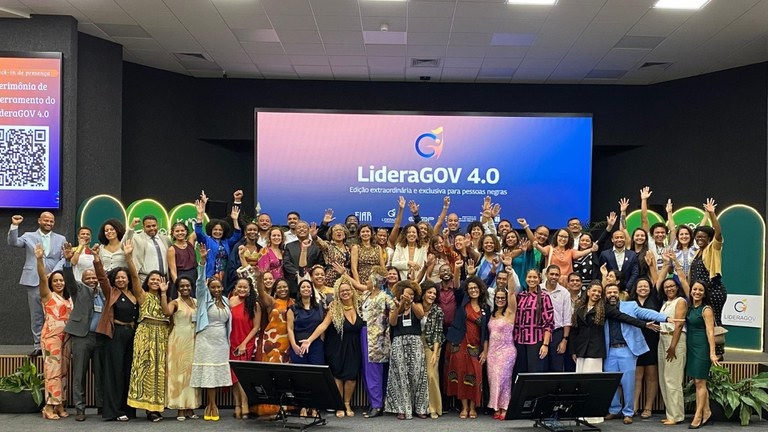
Daiane Ciriáco and Rosinadja Morato, civil servants at the Brazilian Institute of Geography and Statistics (IBGE), completed the 4th edition of the Lidera GOV course, exclusively designed for black people, last Thursday (29). Aimed at developing leaders in the federal public administration, the program is the result of a partnership between the Ministry of Management and Innovation in Public Services (MGI) and the National School of Public Administration (Enap), and aims at creating a network of qualified civil servants to act as leaders in the public service.
The 4th class, held in an extraordinary edition, also had the partnership of the Ministry of Racial Equality (MIR). In this edition, 51 black civil servants from 10 different states participated in the course. The initiative is part of the Anti-Racist Training and Initiatives (FIAR), which aims at preparing black people for leadership positions.
Daiane Ciriáco, from the Geography Coordination (DGC/CGEO) of the IBGE, joined the Institute in October 2016. For her, LideraGov “is an essential program for learning management tools and, above all, for creating a network of contacts and support in the federal government, with people from different areas. This edition for black and brown people reinforces the need to create opportunities for black people, who have historically been marginalized and who to this day are a minority in leadership positions, despite being the majority of the population.”
Head of the Section of Structural Surveys by Establishments at the State Superintendency of Sergipe (SES/SE) of the IBGE, Rosinadja Morato joined the Institute in March 2012. “The 4.0 edition is even more special because, in addition to leadership skills, it includes the context of diversity, racial literacy and expands the representation of the largest population, black people, in a network in which the white population have predominated. This action is extremely important for us to have a more egalitarian Public Service, based on equity, even in leadership positions,” explained Ms. Morato.
The closing event included a panel of authorities, formed by Cristiane Mori, executive secretary of the MGI, and the secretary of the MIR, Márcia Lima, and a keynote speech with Minister Edilene Lobo of the Superior Electoral Court (TSE), in addition to cultural activities. The program dedicated to the conclusion of the course had as its theme “the development of black leaderhips and its impact on improving services for society.”
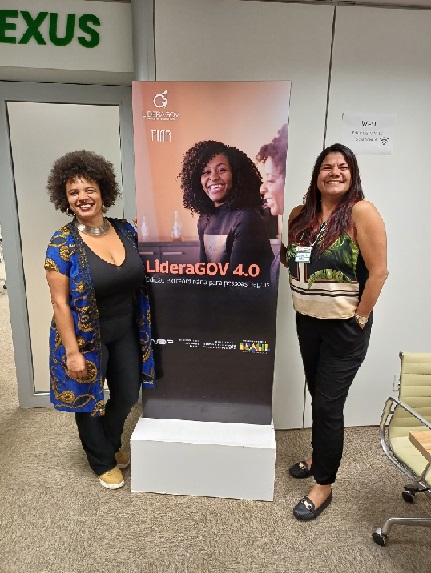
For Ms. Morato, “Lidera GOV represents a training that adds and enhances skills to pursue more competent, effective leadership, committed to the effectiveness of public services.”
“This is a historic moment for public service and for Brazilian society, since a more inclusive and representative public service will also produce more diverse and inclusive policies,” stressed Ms. Ciriáco. “I intend to continue working to ensure that minority groups are included in our surveys, so that the representations that IBGE makes do not reproduce stereotypes and stigmas, and so that relationships between people are light and respectful, facing the challenges imposed by racism,” she concluded.
The remainder is temporarily in Portuguese.
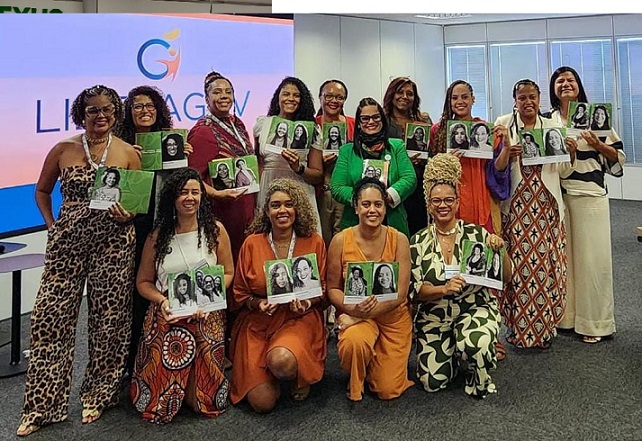
The Program comprises 3 blocks, the first being: Leading Oneself, which addresses the topics of Racial and Gender Equality in leadership positions in the Federal Public Administration and their impact on public policies and on the country's development, Leadership, productivity and quality of life; Competencies for the exercise of Leadership, Behavioral Competencies: Self-knowledge and Self-leadership, Fundamentals of Humanized Team Management.
The second block of the course: Leading People and Teams, with the topics Knowledge of Public Business; The Public Policy Cycle; Racial and Gender Equity in the Organizational Environment; Diversity Management; Productivity and Results Management; Results-Based Management in Practice; Innovation and Driving Change; Strategic Communication for Leaders; Introduction to Negotiation and Conflict Management; Individual and Team Engagement for Results.
And the third, Leading Organizations, which addresses the topics Framing and Solving Public Problems; Evidence-Based Management and Decision Making; Prototyping Solutions for Complex Challenges; Governance and Public Policies; Crisis Management; Communication Strategies in Crisis Scenarios; Introduction to Future Thinking and Scenario Forecasting; Leadership Connection.
The course has a workload of 120 hours of training activities spread over 9 months and 20 additional hours of mentoring activities. Contents covered include strategies for team engagement; achieving institutional goals; decision-making towards high-quality results; and projection of long-term scenarios aligned with organizational objectives.
Black Women in the Federal Public Service
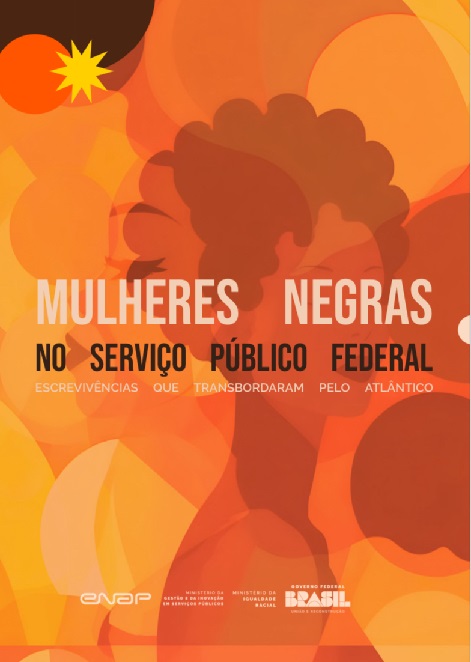
Launched on August 26 in partnership with the Ministry of Racial Equality, the Ministry of Management and Innovation (MGI) and the National School of Public Administration (ENAP), the publication “Black Women in the Federal Public Service” includes the stories of black female public servants from all over the country, enrolled in Class 4.0 of the LideraGOV Program. The publication can be accessed through the link available here.
“Sharing our stories of dreams, struggles, setbacks and achievements, alongside other black women, was a source of great joy, a feeling that we can inspire and strengthen the dreams of so many other black women who face the daily challenge of overcoming prejudice and inequality,” reiterated Rosinadja Morato.
The publication was organized by the Directorate of Affirmative Action Policies, of the Secretariat of Affirmative Actions, Combating and Overcoming Racism (SEPAR), and aims at giving visibility and value to the experiences and achievements of black women in public service.
“It is essential to value and record our writings, which are so rich and representative. It was a pleasure to be alongside incredible women and share these pages with them. I don’t dance alone,” concluded Daiane Ciriáco.
As a result of the actions of Black Women’s July, the document seeks to encourage the recognition and promotion of black leaders in Brazil.
To learn more about LideraGov, access the available link here.





